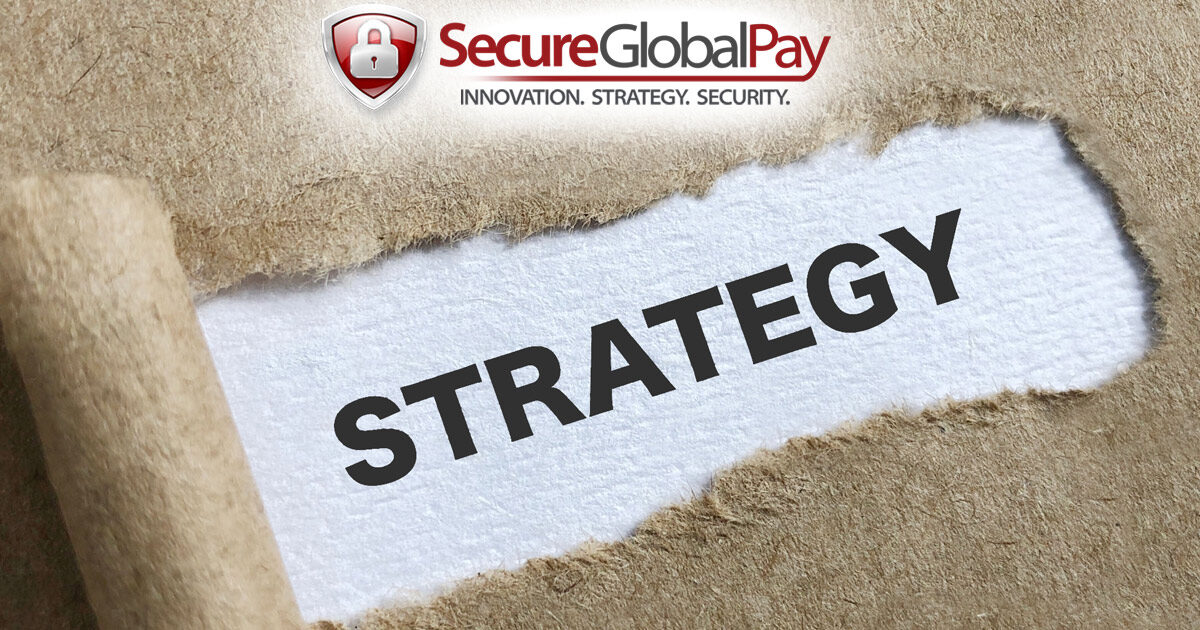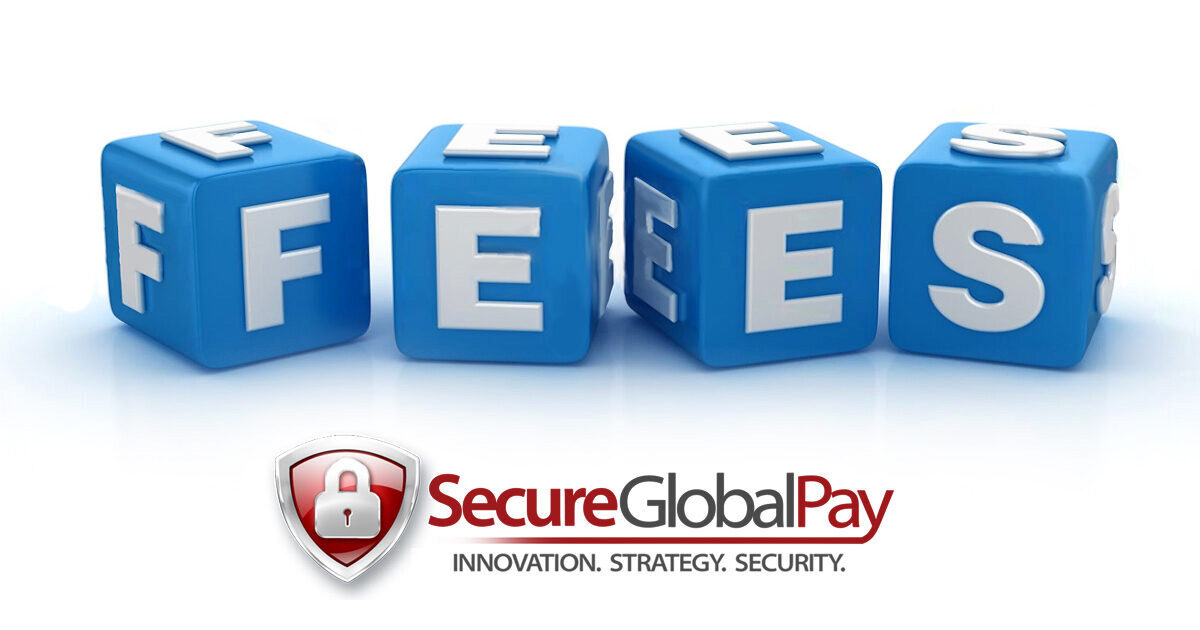
High-Risk Payment Processors – Factors to Consider
High-risk payment processors are those top-shelf acquirers that process payments for merchants that have a higher risk of chargebacks, fraud, and other potential problems. High-risk merchant payment processing is a specialized niche and working with seasoned professionals is always a merchant’s best chance of approval.
High-risk payment processors primarily focus on high-risk high volume merchant accounts and offer services for industries such as adult businesses, online sellers who have been victims of fraud in the past, or any business that has an above-average rate of chargebacks or fraudulent transactions.
If you’re just getting started as a business owner, and your business falls into one of these high-risk industry categories, it doesn’t mean you can’t sell your products or services. You just need to find the right payment service provider that understands the risks involved with your business.
Many processors will refuse to work with businesses in these industries; others may require extensive verification and monitoring before they agree to process payments for your company.
Fortunately, there are many trustworthy high-risk processors out there who understand that different businesses have different risks involved.

Reasons Merchants are Labeled High-Risk
There are several reasons merchants may be labeled high-risk. These include businesses that are perceived to have a higher risk of financial failure, those that represent a higher level of financial risk to payment processors, and those that create additional brand risk for regulatory agencies.
High-risk businesses are typically industries that generate a high level of cardholder disputes, chargebacks, or those that are associated with high levels of fraud.

The Pros & Cons of High-Risk Credit Card Processing
There are both pros and cons to using high-risk payment processors for credit card payment processing.
On the one hand, an experienced and reputable payment processor can be very helpful for many high-risk businesses as they understand credit chargebacks and fraud, and can help you mitigate your losses. They can also help to compensate for the risk that the acquiring bank is taking on. Quality processors will have a lot of benefits included for the additional fees they charge.
On the other hand, an unscrupulous or inexperienced high-risk merchant payment processor may pose greater risks to the merchant’s business operations and practices should they not know what they are doing.
Therefore, it is important to do your research before deciding on which high-risk credit card payment processor to use. Make sure to review the best high-risk payment processors by talking to them on the phone before signing the contract.

What to Look for in a High-Risk Payment Processor
There are several factors you should look for when choosing a high-risk payment processor. First and foremost, it’s important to find a processor that understands the unique risks associated with your product or service.
A processor who understands your unique concerns can better help you avoid problems and help protect you against chargebacks, fraud, and disputes.
Firstly, you’ll want to make sure the processor is equipped to deal with chargebacks. Every business owner will run into a chargeback or two during their careers, but high-risk businesses tend to get hit with chargebacks at a much higher rate than the average business.
If your processor doesn’t have the tools and systems in place to deal with chargebacks, you could end up losing money, losing your merchandise, and even losing your processor’s ongoing business. A good processor will have a system in place that allows you to appeal chargebacks, so you can fight to get your money back.
You should also find a processor that makes it easy to collect money from your customers. Some high-risk processors may not offer all the payment types your customers expect, such as credit cards, debit cards, high-risk e-Check, ACH & Crypto.
You should also look for a processor that can offer you a range of features, with a pricing plan that matches your needs. Some high-risk processors specialize in certain industries, while others are generalists.

Reputation and Transparency – A Good Indicator for Top High-Risk Payment Processors
If you’re trying to decide between several top high-risk payment processors, one of the biggest things you can do is check out their online reviews. You can check out review sites like the Better Business Bureau, Trustpilot, Trustology, and Sitejabber to see what other customers have had to say about the processors you’re considering.
If you’re looking for a reliable processor, you should also consider how transparent each one is about rates, fees, and terms. Trust and transparency go hand in hand.
If you have any questions about the rates you’re being charged, the services you’re being offered, or the terms of the contract, pick up the phone and give your processor a call.

Commitment to Security is a Focus for all the Best High-Risk Payment Processors
Many things stand out about high-risk processors. But one of the biggest of the best high-risk payment processors is their commitment to security.
A high-risk processor can afford to invest in the latest security systems because they know that merchants in riskier industries are more likely to have chargebacks and so it makes sense to have the best protection possible in place.
That’s why high-risk processors may ask you to sign a security bond. A security bond is a promise that you’ll pay any chargebacks that are issued against your account.
Many high-risk processors will offer you the opportunity to take advantage of additional security features like daily fraud scans and 24/7 monitoring of your account.

High-Risk Processing Payment Processors – Customer Service and Education is Key
You may also want to consider the type of customer service your high-risk processing payment processors offer.
Is 24/7 support available? How quickly do they respond to support tickets?
If you have questions about your account, or if you want to get tips on how to avoid chargebacks and other fraudulent activity, can you take advantage of your processor’s educational resources?
You may also want to consider a processor that has a partnership with a fraud prevention company, or one that offers a fraud prevention program of its own.

Payment Processor High Risk – Accounts Requirements
Because payment processor high-risk services deal with higher-risk customers, many processors have FICO requirements for their customers. In other words, you’ll have to go through a check with your processor.
Some processors require a minimum FICO score, while others require a minimum score for specific types of credit, like revolving credit.
If you’re an online seller with a history of chargebacks and/or fraud, some high-risk processors may require you to have a FICO score of 660 or above. Others may require a score of 700 or above.
If your score is below this threshold, you may be able to take steps to increase your score, such as purchasing a credit report, cleaning up any errors, and/or making regular payments on your debt.
Personal Credit Requirements
Some high-risk payment processors will require that their customers have a certain amount of personal credit to use their services. It’s important to check with your processor before signing up to see if they require a certain level of credit.
Be honest about your level of personal credit and any credit issues you may have had in the past. Some processors may be able to work with you, even if you have less-than-perfect credit.
Regardless of the level of personal credit you have, you should expect to provide your processor with extensive financial information, including your credit report and/or credit score.
Even if your credit score is low, or nonexistent, you may only be able to find high-risk processors that work with businesses with bad or no credit.
SSL or TLS Certificate Requirement
If you’re an adult-related or another business that deals in sensitive/personal information, you may be required to use secure payment methods, such as SSL or TLS. Depending on the processor you choose, this might not be an issue.
However, it’s important to check with your processor to make sure they offer these secure payment methods. Some processors may not offer these payment methods, and others may charge a fee for them.
For example, if your processor doesn’t offer industry-standard secure payment methods, and you need to use them, you may be responsible for paying the fees involved with setting this up. You may also be responsible for ensuring your customers’ sensitive information is adequately protected, which could create additional costs for your company.
If your business accepts credit cards, you’ll have to have a secure payment system in place. This system uses SSL technology to encrypt your customer’s credit card information as soon as it’s entered into your system.
This helps to protect your customers’ sensitive information and ensures that it can’t be misused by anyone who gains access to your systems. Most high-risk processors require their clients to have an SSL-certified payment gateway like SecureGlobalPay’s secure payment gateway for high-risk business.
If you don’t have one, or if your current processor doesn’t provide one, you may have to find a new processor.

Chargebacks Explained
A chargeback occurs when a customer disputes a payment and wants the transaction charge reverted back to a payment card.
Chargeback rates have increased astronomically over the years for several reasons. High-Risk business categories are also increasing in tandem.
One major reason is that customers are well aware that the chargeback process works in their favor.
It is a problem that affects a merchant’s bottom line and questions whether a high-risk merchant payment processor should retain their clients because of the risks involved.
Chargebacks are not good for business and when a business has a high percentage ratio compared to its total transactions, the account can be shut down. This can ultimately signal the end of that business because the business has no other means of processing payments.

How High-Risk Payment Processors Keep Chargebacks Low
Dishonest cardholders filing payment disputes, otherwise known as friendly fraudsters, make up most chargeback claims.
These are people who want to keep a product or use a service and do not want to pay for it. According to reports, 86% of chargebacks are filed for this reason.
But merchants can contest these disputes through a process known as a chargeback representment.
This process allows merchants to provide convincing evidence good enough to secure a dispute reversal and ultimately recover revenue that would have been forfeited due to a chargeback claim.
More and more high-risk business categories are warming up to the hazards of friendly fraud and taking calculated steps to address the problem by working with the best high-risk payment processors capable of helping prevent chargebacks or by keeping their chargeback ratios down to the barest minimum.
Since high-risk businesses are more prone to chargebacks than low-risk businesses, their transaction patterns as well as business activities require scrutiny.
The best high-risk payment processors do this to come up with the right strategy or blueprint for your high-risk business category.
An experienced high-risk payment processor always needs to know the level of risk a business poses as this ultimately determines whether the chargeback ratio will be high or low.

EMV Technology & PCI Requirements
If you’re looking for a high-risk payment processor, you may have the option to take advantage of EMV technology. EMV stands for Europay, MasterCard, and Visa.
It refers to the standard for secure payment processing that was developed by credit card companies to combat fraud. If you decide to use a high-risk payment processor that offers EMV, you’ll also need to be PCI-compliant.
PCI compliance is a set of security standards that help reduce credit card fraud. To achieve PCI compliance, your company will need to prove that it has the right security protocols in place to keep payment information secure.
Many high-risk processors offer a wide range of security features. These include authentication methods like 2-factor authentication, tokenization, token swiping, and biometric scanning.
Cardholder Data Protection
High-risk merchant payment processors are required to keep the personal and financial information of your customers secure when in high-risk merchant accounts.
If you select a high-risk processor, expect to go through a verification process that may include steps like uploading your business’s relevant documentation and entering identifying information about your company’s owners.
Once you’re approved, you can be confident that your processor has taken all the necessary steps to protect your customers’ sensitive information. It is an area where the top high-risk payment processors specialize.
Fraud Protection
When you’re dealing with high-risk payments, it’s critical to have a fraud detection and prevention strategy in place. If a fraudulent transaction is attempted, and your processor doesn’t have an effective fraud prevention strategy in place, you may be held responsible for that chargeback.
You can expect to see a variety of fraud protection methods from high-risk payment processors. One of the biggest differences between high-risk and standard payment processors is the type of fraud protection that’s built into their systems.
Standard processors use a system called AVS. It’s designed to check the validity of the card’s security code. If the code doesn’t match the cardholder’s address, the payment will be declined.
If you use a high-risk payment processor, you’ll see a higher level of protection to help prevent “card not present” (CNP) fraud and other scams.

High-Risk Merchant Payment Processor – Check Hidden Fees and Clauses
Lastly, you should make sure to read the fine print of any contract you sign with a high-risk merchant payment processor.
You should be particularly alert for clauses that might limit your access to your funds, restrict your transactions, and/or increase your costs.

Flexibility
Find a high-risk payment processor that is flexible and allows your business to adapt to different scenarios.
Does the processing platform provide nifty APIs and various plug-ins that give you complete access to the payment process?
Can you easily customize and automate the payment procedure?
The perfect high-risk payment processor offers a fast and smooth onboarding experience without surprises or downtime.

Verification and Monitoring Requirements
In some cases, you may be asked to undergo a verification process to use a high-risk processor. During the verification process, your processor may ask you to provide them with detailed information about your business, including your financial history, tax ID number, and contact information.
The level of verification and monitoring that a high-risk processor requires will vary from one processor to another. The type of business you have, and the payment types it plans to use, will factor into this verification and monitoring process.
Depending on the type of business you run, you may be asked to provide a business plan to your processor. In some cases, you may be asked to provide a letter of credit, which is a trust agreement between you and your processor.
If you’ve been a victim of fraud in the past, expect to go through a more extensive verification process. You may be asked to submit copies of police reports and other documentation that proves you were a victim of fraud.
Some processors will ask you to provide an extensive list of identification and contact information for your company’s owner, employees, and/or IT staff. Other processors will ask for credit reports and other financial documents. Other processors may even request that you undergo a criminal background check.
Verification is a requirement for many high-risk processing payment processors. Verification helps to ensure the legitimacy of your business, and can also help to ensure that you’re able to pay back the processor if there is ever an issue with chargebacks.
If you’re required to go through a verification process, be sure to provide accurate information. If you falsify or falsify information, you could be barred from using payment processors for the foreseeable future.

Conclusion
When you’re choosing a processor, don’t let the fact that your business falls into a high-risk category deter you from finding an appropriate processor. We understand the specific challenges that high-risk businesses face and are eager to help solve them.
Choosing the right high-risk processor can be challenging, particularly if you don’t know what to look for. Finding a processor who understands the risks involved with your business can help you cut down on risks and problems like chargebacks and fraud.
Secure Global Pay’s modern payment processing permits a streamlined and accessible customer experience that mitigates credit card chargebacks.
Traditional financial institutions simply do not like doing business in high-risk industries with high chargeback ratios. Long-term processing history and a UBO with an excellent credit score will help the account get approved but staying approved is another story.
Fortunately, knowledgeable high-risk payment processors like SecureGlobalPay are available to provide credit card processing solutions for high-risk merchants. These services are offered via a merchant account and payment gateway specifically designed for your business type.
With the use of a high-risk payment gateway, higher-risk business types have an opportunity to reduce their chargeback claims.
When dealing with a reputable and competent high-risk payment processor, merchants can position themselves with the right acquirer that will help them scale their business for many years to come.



